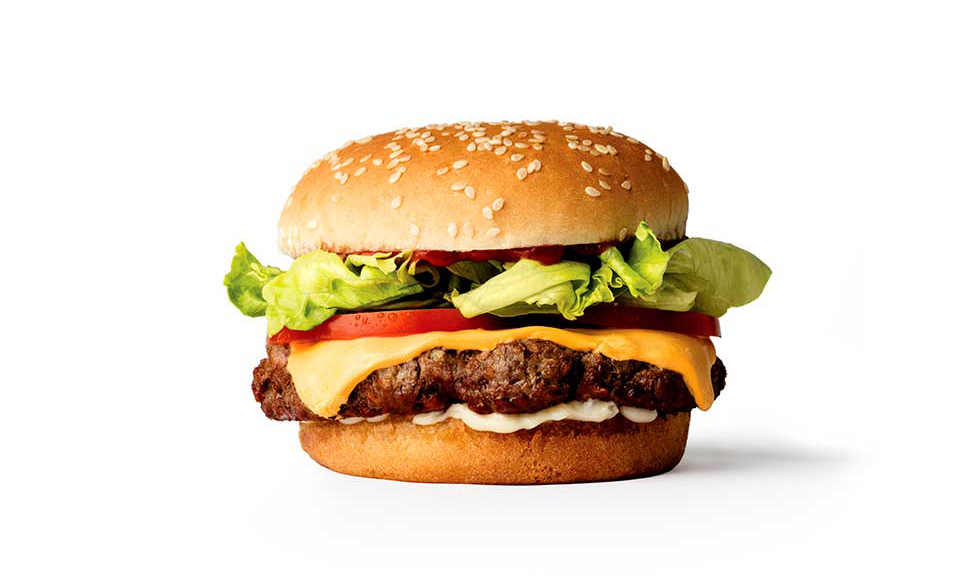Impossible Foods, maker of the plant-based Impossible Burger, has hired creative veteran Sasha Markova as the company’s first executive creative director. Markova will lead Impossible Foods’ in-house creative team, which will manage all visual messaging across the brand’s channels.
The move comes after Impossible Foods began producing burgers at its first full-scale production plant in Oakland, California, in September. As the Oakland facility ramps up, the company plans to launch retail sales, as well as develop additional plant-based meat and dairy products.
“Impossible Foods is a new paradigm brand and requires a different way of storytelling,” Markova said. “The sense of mission that exists at Impossible Foods is powerful and intoxicating. I’m thrilled to be leading the charge in uncovering the most brilliant and contagious ways of communicating that.”
Previously, Markova was global creative director at Mother London and Mother LA from 2009-2017. During her tenure at Mother, she oversaw efforts for clients such as Stella Artois and Boots, and built a foundation for its first-class brand reputation and international acclaim alongside founders Mark Waites and Robert Saville, says Impossible Foods.
After relocating to Los Angeles in 2015, the London native led Mother’s expansion to the West Coast, earning the accounts of Headspace and The Academy of Motion Picture Arts and Sciences under her creative direction.
At Impossible Foods, Markova will join forces with the company’s in-house team. She will work in tandem with Creative Director Giselle Guerrero, bringing her expertise in storytelling to the growing startup.
Markova is the latest hire to join the expanding senior team at Impossible Foods.
In September, Marcella Butler became Impossible Foods’ first chief people officer, reporting directly to Impossible Foods CEO and Founder Dr. Patrick O. Brown. Dr. In June, David J. Lipman, M.D., joined the company in the newly created role of chief science officer, reporting directly to the CEO. Food industry veteran Chris Gregg took over as SVP of supply chain and manufacturing in May 2017, overseeing operations for manufacturing and supply chain.
In development since 2011, the Impossible Burger cooks, tastes and smells like ground beef from cows, says the company, but is made entirely from plants. Launched in 2016 in a handful of restaurants in New York and California, the Impossible Burger is available now in more than 700 restaurants from Hawaii to Maine.
The Impossible Burger is produced without hormones, antibiotics, cholesterol or artificial flavors. According to the company, it uses about 75 percent less water, generates about 87 percent fewer greenhouse gases, and requires around 95 percent less land than conventional ground beef from cows.
The Impossible Burger is made from ingredients including water, wheat protein, potato protein, and coconut oil. One essential ingredient—heme—contributes to the characteristic taste of meat and catalyzes all the other flavors when meat is cooked, the company says, adding that Impossible Foods discovered how to get heme from plants, “transforming the Impossible Burger into a carnivore’s delight that’s light on the planet.”

Based in Redwood City, California, Impossible Foods makes meat and dairy products directly from plants, with a smaller environmental footprint than meat from animals. The privately held company was founded in 2011 by Patrick O. Brown, M.D., Ph.D., formerly a biochemistry professor and Howard Hughes Medical Institute investigator at Stanford University. Investors include Khosla Ventures, Bill Gates, Google Ventures, Horizons Ventures, UBS, Viking Global Investors, Temasek and Open Philanthropy Project.
Keep reading:
https://www.theshelbyreport.com/2018/02/09/impossible-foods-donation-program/
2018 Will See High Meat Consumption, But The American Diet Is Shifting
https://www.theshelbyreport.com/2018/01/10/meatless-meat-protein-market-impact/

